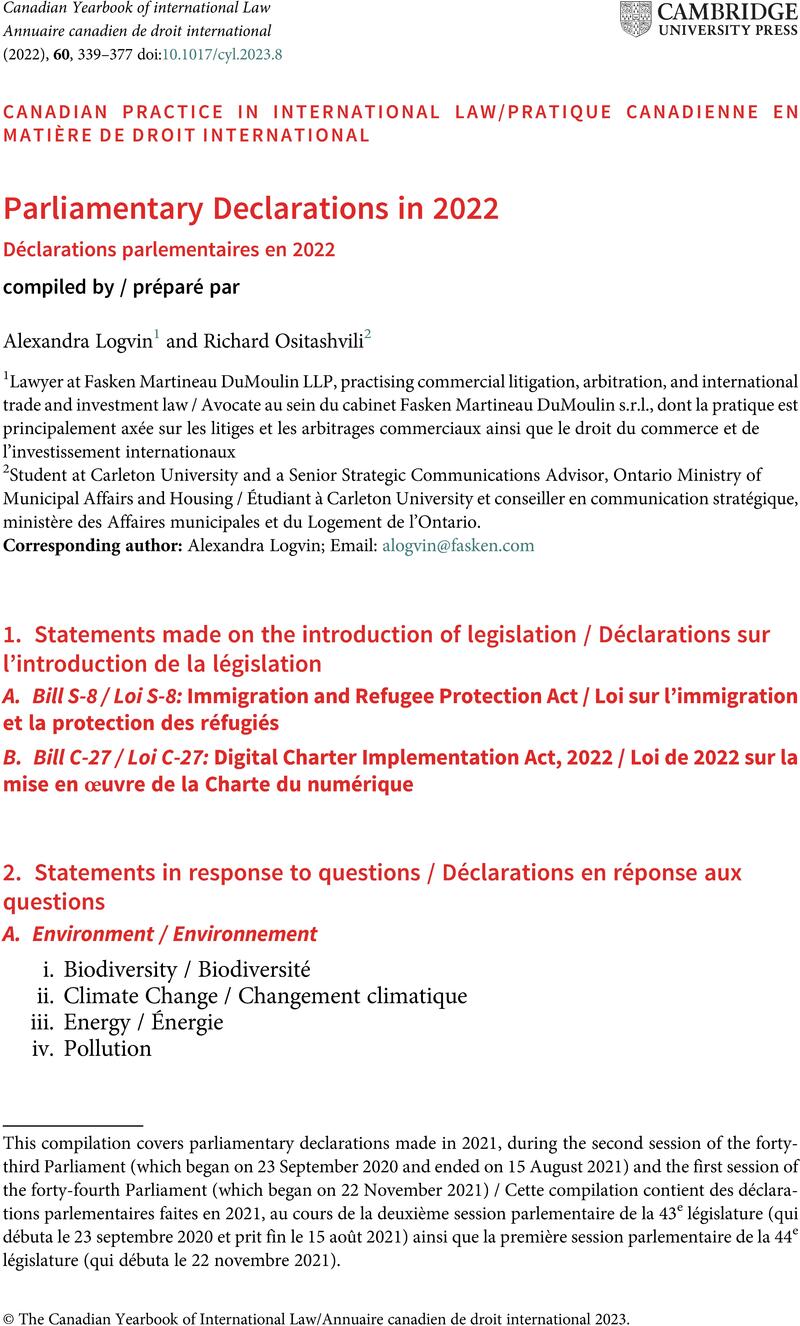No CrossRef data available.
Published online by Cambridge University Press: 25 August 2023

This compilation covers parliamentary declarations made in 2021, during the second session of the forty-third Parliament (which began on 23 September 2020 and ended on 15 August 2021) and the first session of the forty-fourth Parliament (which began on 22 November 2021) / Cette compilation contient des déclarations parlementaires faites en 2021, au cours de la deuxième session parlementaire de la 43e législature (qui débuta le 23 septembre 2020 et prit fin le 15 août 2021) ainsi que la première session parlementaire de la 44e législature (qui débuta le 22 novembre 2021).
1 Editor’s Note: An Act to Amend the Immigration and Refugee Protection Act, to Make Consequential Amendments to Other Acts and to Amend the Immigration and Refugee Protection Regulations / Loi modifiant la Loi sur l’immigration et la protection des réfugiés, apportant des modifications corrélatives à d’autres lois et modifiant le Règlement sur l’immigration et la protection des réfugiés, introduced and first read in the House of Commons on 4 October 2022.
2 Editor’s Note: An Act to Enact the Consumer Privacy Protection Act, the Personal Information and Data Protection Tribunal Act and the Artificial Intelligence and Data Act and to Make Consequential and Related Amendments to Other Acts / Loi édictant la Loi sur la protection de la vie privée des consommateurs, la Loi sur le Tribunal de la protection des renseignements personnels et des données et la Loi sur l’intelligence artificielle et les données et apportant des modifications corrélatives et connexes à d’autres lois, introduced and first read in the House of Commons on 16 June 2022.